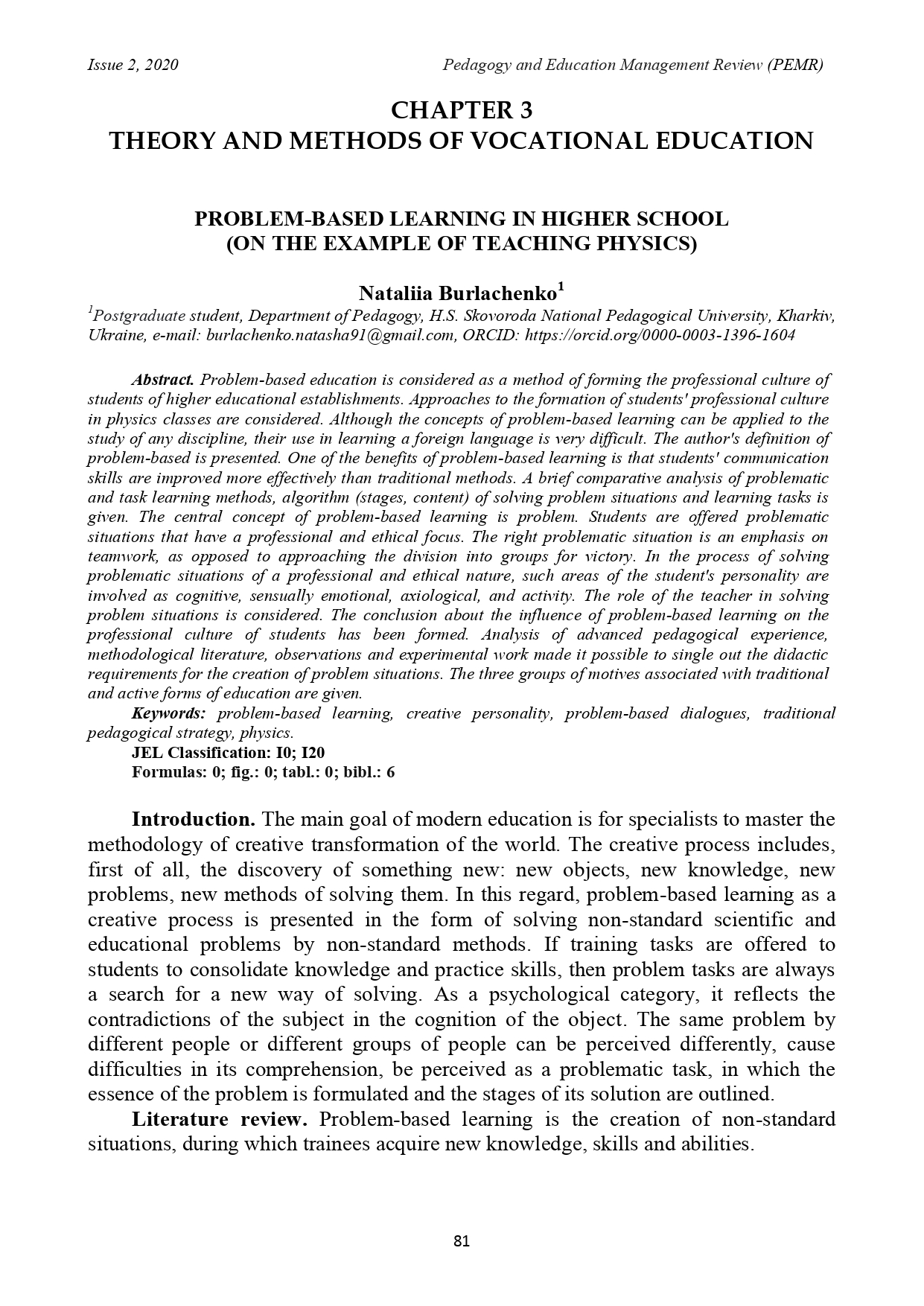PROBLEM-BASED LEARNING IN HIGHER SCHOOL (ON THE EXAMPLE OF TEACHING PHYSICS)
DOI:
https://doi.org/10.36690/2733-2039-2020-2-81Keywords:
problem-based learning, creative personality, problem-based dialogues, traditional pedagogical strategy, physicsAbstract
Problem-based education is considered as a method of forming the professional culture of students of higher educational establishments. Approaches to the formation of students' professional culture in physics classes are considered. Although the concepts of problem-based learning can be applied to the study of any discipline, their use in learning a foreign language is very difficult. The author's definition of problem-based is presented. One of the benefits of problem-based learning is that students' communication skills are improved more effectively than traditional methods. A brief comparative analysis of problematic and task learning methods, algorithm (stages, content) of solving problem situations and learning tasks is given. The central concept of problem-based learning is problem. Students are offered problematic situations that have a professional and ethical focus. The right problematic situation is an emphasis on teamwork, as opposed to approaching the division into groups for victory. In the process of solving problematic situations of a professional and ethical nature, such areas of the student's personality are involved as cognitive, sensually emotional, axiological, and activity. The role of the teacher in solving problem situations is considered. The conclusion about the influence of problem-based learning on the professional culture of students has been formed. Analysis of advanced pedagogical experience, methodological literature, observations and experimental work made it possible to single out the didactic requirements for the creation of problem situations. The three groups of motives associated with traditional and active forms of education are given.
Downloads
References
Abdulina, O. A. (1993), Osobystist studenta v protsesi profesiinoi pidhotovky [Student's personality in the process of professional training], 3, 7-8 [in Russian].
Ananiev, B. H. (1997), Vybrani psykholohichni pratsi [Selected psychological works], М: MESI, 97-99 [in Russian].
Borozdina, H. V. (2016), Psykholohiia i pedahohika: Pidruchnyk dlia bakalavriv [Psychology and pedagogy: A textbook for bachelors], Liubertsi: Yurait, 26-28 [in Russian].
Davydov, V. V. (1996), Teoriia rozvyvaiuchoho navchannia [Theory of developmental learning], M: INTOP, 34 [in Russian].
Russo, Zh.-Zh. (1981), Emil abo pro vykhovannia. pedahohichni tvory [Emil or parenting. Pedagogical essays], M: Pedahohika, 5 [in Russian].
Shipilina, L. A. (2013), Metodolohiia i metody psykholoho-pedahohichnykh doslidzhen: Navchalnyi posibnyk dlia aspirantiv i mahistrantiv za napriamom «Pedahohika» [Methodology and methods of psychological and pedagogical research: Textbook for graduate students and undergraduates in the direction of "Pedagogy"], M: FLINTA, 13 [in Russian].






